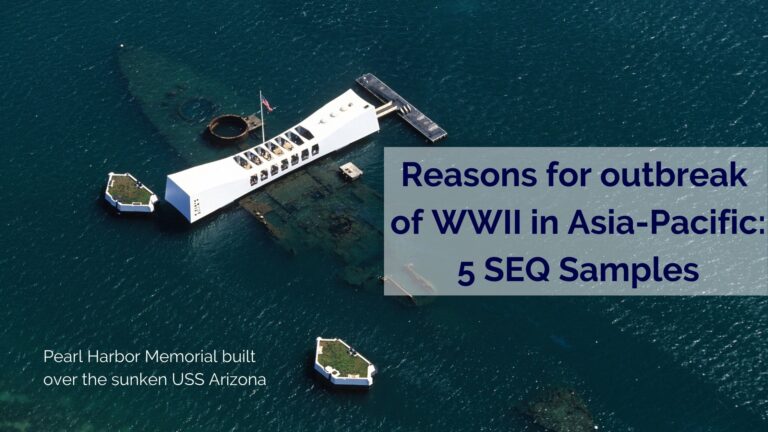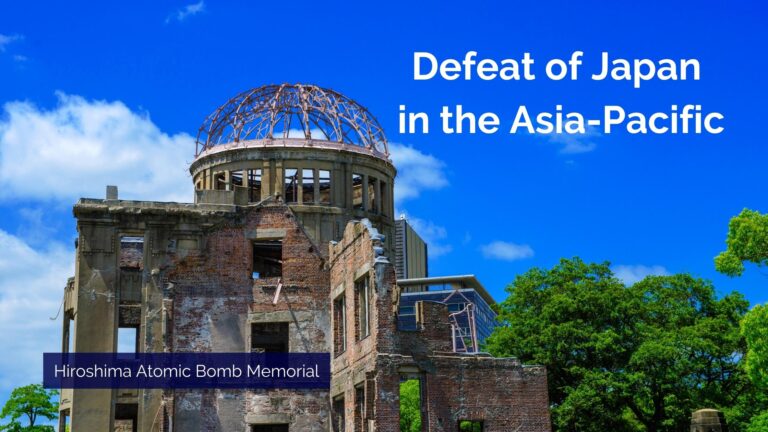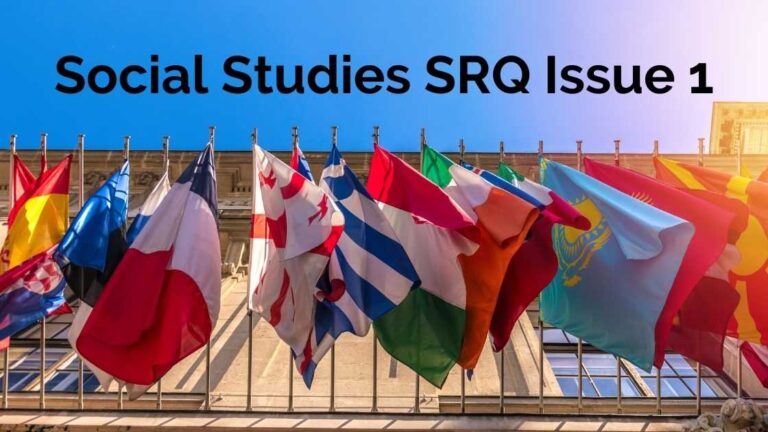How did Russo-Japanese Relations Affect World War II?
The current O Level History syllabus hardly mentions Russo-Japanese relations except for a few instances like the Russo-Japanese War in 1905. I feel that this does not give the full picture of the events. In some instances, the Russians (and later the Soviets) directly played a major role in the decisions made by other countries.
While I am not sure the reason for the exclusion of Russia-Japanese relations in the textbook, I feel that some background should be given so that students have a bigger picture of what was happening during this period.
Russo-Japanese Relations during Japan’s Isolation
Though Japan was practising an isolationist policy between the 17th to most of 19th century, Russia and Japan maintained some level of diplomacy. This is due to Russia and Japan being neighbours, as they faced each other across the Sea of Japan.
When the Russians learnt about Matthew Perry’s mission to open up Japan, the Russians also sent a mission to Japan. This led to the signing of the Treaty of Shimoda and the establishment of diplomatic and commercial Russo-Japanese relations.
Russo-Japanese War (1905)
Relations between the two countries were mostly friendly in the beginning; they agreed to sign the Treaty of Petersburg (1875) in their border dispute over islands north of Japan. As a result, Russia gained control of Sakhalin and Japan had control over the Kuril Islands.
However, by the 1890s Russo-Japanese relations had broken down over Korea and Manchuria. Japan was attempting to create a sphere of influence in Korea and Manchuria, but Russia had encroached on it. Japan offered to recognise Russian authority in Manchuria in return for acceptance of Japan’s domination of Korea. The Soviet Union rejected this proposal.
This led to a surprise attack on the Russian fleet by the Japanese navy at Port Author in 1905. The Russian lost and the American President mediated peace between the two powers. The end result was Japan was able to gain influence in Manchuria as they were allowed to lease Liaodong and the Russian-built South Manchurian Railway.
This was an important development that led to increasingly aggressive Japanese behaviour towards China. Subsequently, the Russo-Japanese relations became much improved till the successful Communist victory in Russia.
Establishment of Soviet Union
When the Communists won in Russia, there was a downturn in Soviet-Japanese relations as Japan joined the other European powers in fighting the Bolsheviks. However, by 1925, their relationship had normalised as Japan recognised the Soviet government.
The period of this was one of quiet cooperation as Japan was experimenting with the democratic process under the Taisho emperor.
Japanese Invasion of Manchuria and its impact on Soviet-Japanese Relations
By 1932, it was clear that the militarists in Japan were gaining power when it invaded Manchuria. This led to increasingly tense Soviet-Japanese relations. The Japanese invasion of China in 1937 was a sign of Japan’s desire to expand beyond its borders.
These tensions would eventually lead to an undeclared war between the Soviet Union and Japan along the Mongolian-Manchurian border in 1939. The Soviet Union won this war decisively. This war had important consequences for the development of World War II.
The Japanese military at this time had two proponents of what territories to invade after invading China. One group encouraged the invasion of Siberia (in Soviet territory) while the other encouraged the invasion of Southeast Asia. With this defeat, the idea of invading Siberia was dropped.
Another consequence of this war was that the Japanese became wary of any conflict between them and the Soviet Union. This resulted in the signing of the Soviet-Japanese Neutrality Pact in April 1941.
Soviet-Japanese Neutrality Pact 1941
With this border secured, Japan turned its attention to Southeast Asia. It planned for its invasion of Southeast Asia. Eight months later, the Japanese bombed Pearl Harbour.
Other than allowing Japan to bomb Pearl Harbour with peace of mind, the Soviets were also able to move troops that were previously deployed to defend the border to help with the German invasion because of the Soviet-Japanese Neutrality Pact. Undoubtedly, this had helped the Soviets defend against the superior German forces.
Interestingly, both sides did not break the pact until late in the war; even though both sides were fighting on opposite sides and had a common border, there was no confrontation until Stalin broke the pact in 1945.
In the chapter about Japan’s defeat in World War II, the textbook emphasises the role of the atomic bomb in making Japan surrender unconditionally. However, there are also many historians arguing that the Soviet entry into the war was the more important factor.
Firstly, the Japanese had reached out to the Soviets to negotiate a conditional surrender. The Soviet entry meant this route was out of the question. Secondly, Soviets had crushed the Japanese troops in Manchuria decisively twice (once in 1939 and once more in 1945 when they invaded). The Japanese knew that they would lose to the Soviets.
Conclusion
I will not go into discussing which was more important: the atomic bombs or the Soviet invasion. This is best answered by historians who are experts. Anyway, I doubt we will get any agreement – it has been 80 years and there is still no consensus.
As you can see, there is a lot of value in exploring Russo-Japanese or Soviet-Japanese relations as it shows an element that is not discussed at all in the textbook. I hope that students will have a better understanding of World War II after reading this.

Critical Thought English & Humanities is your best resource for English, English Literature, Social Studies, Geography and History.
My experience, proven methodology and unique blend of technology will help your child ace their exams.
If you have any questions, please contact us!







